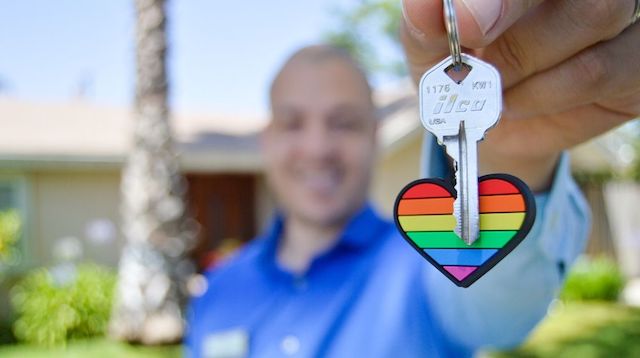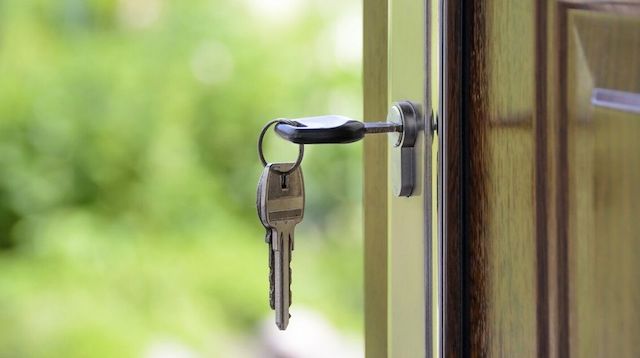So, it’s time for a job change and you’re considering getting a real estate license. As a long-time agent in Ontario, I can say that it is more like a lifestyle change than a job change for the 20% who succeed in this field.
Before you read any further, ask yourself if you have family and friends who are supportive and understanding. You will need their support emotionally and perhaps financially.
The rule of thumb is that you will need six months to a year’s income in the bank before you get your realtor license.
In Canada, real estate licensing is handled differently in each province. If you are considering becoming a real estate agent, you should start by searching for the requirements of your provincial regulatory bodies.
Editor’s note: A high-performing website is key to any agent's success. Launch a site today with our 30-day risk-free trial. Includes IDX Broker integration, plus tools to help you show up everywhere that matters.
3 tips for future real estate agents
Forty years ago, I decided to get my Real Estate License and it has been an amazing ride. Here’s my advice for anyone thinking about becoming a real estate agent:
- Always focus on the client.
- Set boundaries.
- Redefine career success.
Let’s get started by talking about the costs and coursework involved in getting a real estate license.
How it works in Ontario

In Ontario, we are guided by the Real Estate and Business Broker’s Act which is under the Real Estate Council of Ontario (RECO).
Please note that a “licensee” is anyone registered with RECO who has completed all the requirements. However, to become a REALTOR, you must work for a brokerage that is a member of a board or association linked to the Canadian Real Estate Association.
The brand REALTOR is licensed for use in Canada by the Canadian Real Estate Association, and of course for each level of Association there are costs:
- Local
- Provincial
- Federal
This can cost you up to two thousand a year for your membership dues and insurance.
Coursework
The licensing coursework is lengthy and you must also finish other courses in your first two years. The classes focus on rules, regulations and laws that affect the real estate industry, but don’t provide much sales training.
If you love the business and are a course junkie, there is a lot to learn.
Some agents take their studies to the broker level in order to manage a real estate office. If that is your goal or if you want further credibility, then a broker license is the way to go.
However, if the goal is to increase your income, having “broker” after your name won’t do much for you. Clients are more interested in your past successes and referrals than about the courses you have taken. Staying active on social media and getting good online reviews will bring more attention than having the title “broker” or “salesperson/agent” after your name.
Related: How to become a real estate agent in Canada
A few words of advice
After completing the basic real estate licensing course, most provinces require you to find an agency to sponsor your real estate license application. Make sure that you shop around, as there are a number of companies that offer training for new agents.
I suggest that in those first two years, you:
- Put your head down and focus
- Take every opportunity possible
- Work only on your own development
And don’t be too hard when you have failures; they make you appreciate your successes. A few other tips:
1. Always focus on the client

You are now self-employed, and these decisions are not the same as when you were a salaried employee. You are in charge!
It is a great job, but a life changer.
You might be surprised to learn that 20% of the realtor community is responsible for 80% of the business.
The competitiveness of this field can affect your success. Clients are not enamored when they see you trying too hard to sell and letting issues fall through the cracks.
If you make mistakes and don’t handle them properly, it can lead to RECO complaints as well as lawsuits. This will certainly affect your business ... and not in a good way.
2. Set boundaries
You must set boundaries for yourself, your clients, your friends and family. For example:
At 10 p.m. the phone and computer are turned off and not turned on until your morning ritual for you and your family have been completed.
While it is possible to work from home, the home office can be so seductive that you are seldom at rest. You will soon show the stress that your new venture has invited.
3. Redefine career success
Ask yourself why you’d consider a future in real estate. If the answer is, “because I’d be my own boss,” shake your head.
If you have three sellers and three buyers, you now have six bosses.
You will only be successful by going above and beyond your competitors in providing service to your six bosses.
Real estate is the only business I am aware of where you sit with your competitors every night and try to negotiate an agreement, knowing that you will not get paid until the closing two to three months later. Until then you are working for free.
There is always the chance that, even with all your work and a good result, when your clients are about to sign on the dotted line, they could change their minds.
Don’t get me wrong: it is a wonderful life that has afforded me a lifestyle and business that is a rarity. I wake up every day in abundance to survey what the day holds and am seldom bored. I consider myself one of the lucky ones to have survived and succeeded.
A real estate license might be your next step

Knowing the journey over the past years, would I make the same decision again?
At the time that I started my career, I was convinced that I could not go back to my previous life. Having no other option is a big motivator in newer salespeople. When your only option is moving forward, you can accomplish more than you ever expected and be comforted by your success.
Closings become your applause and like all performers, each achievement drives you to the next deal. And it all starts with that piece of paper called a real estate license.







